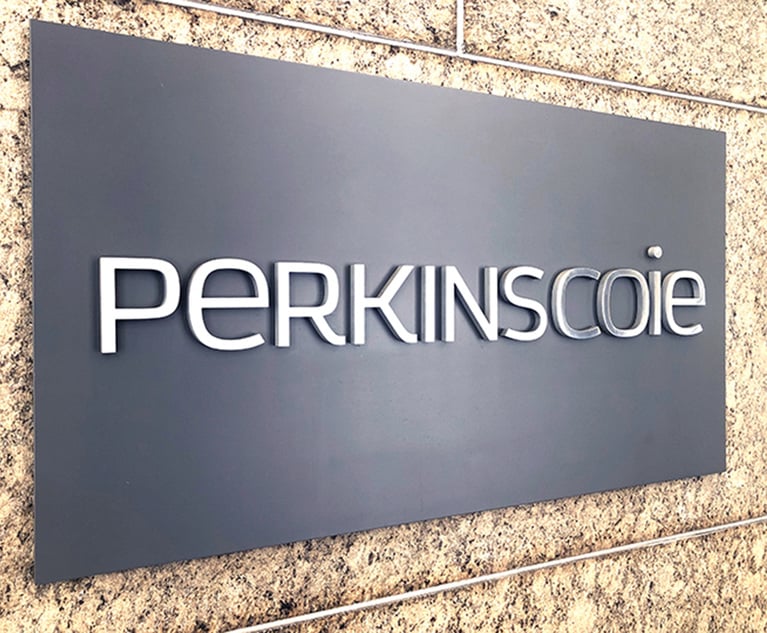Marijuana Banking Goes to Washington, as House Holds First-Ever Hearing
"Having a safe harbor for banks is probably the most expeditious way of getting more folks out of the black and gray markets and into the legitimate markets," California Treasurer Fiona Ma said.
February 13, 2019 at 06:26 PM
4 minute read
California Treasurer Fiona Ma pleaded with federal lawmakers Wednesday to enact safe harbor legislation aimed at encouraging more banks and credit unions to accept state-licensed marijuana businesses as customers.
Ma, testifying before the U.S. House subcommittee on consumer protection and financial institutions, noted that California has explored creating its own public bank and authorizing a closed-loop banking system as alternatives to the cash-dominated cannabis market that exists today.
None of those proposals are preferable, Ma said, to federal legislation that would shield existing depositories from prosecution under money laundering laws.
“Having a safe harbor for banks is probably the most expeditious way of getting more folks out of the black and gray markets and into the legitimate markets,” Ma said.
➤➤ Get the latest cannabis lawyering, compliance and commentary straight to your inbox with Higher Law, a new Law.com briefing. Learn more and sign up here.
Wednesday's hearing was the first of its kind in the House, where years of recent Republican control tamped down any discussion of bills addressing state-legal marijuana. Rep. Maxine Waters, D-California, now chairs the Committee on Financial Services and has indicated she's willing to entertain legislation aiding regulated cannabis.
Waters made a brief appearance at the subcommittee hearing, saying she wanted to witness Rep. Ed Perlmutter's “moment in the sun on this issue based upon all of the time and the effort that he's put into the cannabis issue.”
Perlmutter, a Colorado Democrat, has previously introduced legislation to encourage marijuana banking only to watch the bills die without a hearing. He and a trio of bipartisan lawmakers have re-introduced banking legislation this year.
“Today's hearing is a big deal,” Perlmutter said. “It's a big deal for thousands of employees and businesses across this country who have been put at risk because they are forced to deal in piles of cash while Congress stuck its head in the sand for the last 20 years.”
Perlmutter's bill, the Secure and Fair Enforcement Banking Act, would bar banking regulators from sanctioning financial institutions that serve “legitimate” cannabis businesses. The bill would also explicitly allow banks to set up accounts for companies that do business with marijuana operations, such as law firms and utilities.
“In Washington state there are three banks and three credit unions that provide banking services to the cannabis industry,” said Gregory Deckard, president of State Bank Northwest in Spokane, Washington. “There are several other banks in the state that, if there was some clarity provided and a safe harbor created for institutions, there would be more entrants into the cannabis banking market.”
Through September 2018, 375 banks and 111 credit unions across the country provided services to marijuana-related businesses, according to the U.S. Treasury's Financial Crimes Enforcement Network.
Republicans on the subcommittee criticized Perlmutter's legislative proposal, arguing that advocates should pursue marijuana's declassification as a Schedule 1, potentially addictive drug before seeking more banking access.
“We must remember that we're dealing with an illegal industry on the federal level,” said Rep. Blaine Luetkemeyer, R-Missouri. “As far as I know the House Financial Services Committee does not have jurisdiction over descheduling a drug. And in my opinion we're putting the cart before the horse in addressing this issue here.”
Read more:
Cannabis Companies Still Face Hurdles When Seeking Federal Trademark Protection
This content has been archived. It is available through our partners, LexisNexis® and Bloomberg Law.
To view this content, please continue to their sites.
Not a Lexis Subscriber?
Subscribe Now
Not a Bloomberg Law Subscriber?
Subscribe Now
NOT FOR REPRINT
© 2025 ALM Global, LLC, All Rights Reserved. Request academic re-use from www.copyright.com. All other uses, submit a request to [email protected]. For more information visit Asset & Logo Licensing.
You Might Like
View All
Judge Grills DOJ on Trump’s Birthright Citizenship Executive Order

Perkins Coie Backs Challenge to Trump's Ban on Transgender Military Service
4 minute read
Dissenter Blasts 4th Circuit Majority Decision Upholding Meta's Section 230 Defense
5 minute read
‘Listen, Listen, Listen’: Practice Tips From Judges in the Oakland Federal Courthouse
Trending Stories
Who Got The Work
J. Brugh Lower of Gibbons has entered an appearance for industrial equipment supplier Devco Corporation in a pending trademark infringement lawsuit. The suit, accusing the defendant of selling knock-off Graco products, was filed Dec. 18 in New Jersey District Court by Rivkin Radler on behalf of Graco Inc. and Graco Minnesota. The case, assigned to U.S. District Judge Zahid N. Quraishi, is 3:24-cv-11294, Graco Inc. et al v. Devco Corporation.
Who Got The Work
Rebecca Maller-Stein and Kent A. Yalowitz of Arnold & Porter Kaye Scholer have entered their appearances for Hanaco Venture Capital and its executives, Lior Prosor and David Frankel, in a pending securities lawsuit. The action, filed on Dec. 24 in New York Southern District Court by Zell, Aron & Co. on behalf of Goldeneye Advisors, accuses the defendants of negligently and fraudulently managing the plaintiff's $1 million investment. The case, assigned to U.S. District Judge Vernon S. Broderick, is 1:24-cv-09918, Goldeneye Advisors, LLC v. Hanaco Venture Capital, Ltd. et al.
Who Got The Work
Attorneys from A&O Shearman has stepped in as defense counsel for Toronto-Dominion Bank and other defendants in a pending securities class action. The suit, filed Dec. 11 in New York Southern District Court by Bleichmar Fonti & Auld, accuses the defendants of concealing the bank's 'pervasive' deficiencies in regards to its compliance with the Bank Secrecy Act and the quality of its anti-money laundering controls. The case, assigned to U.S. District Judge Arun Subramanian, is 1:24-cv-09445, Gonzalez v. The Toronto-Dominion Bank et al.
Who Got The Work
Crown Castle International, a Pennsylvania company providing shared communications infrastructure, has turned to Luke D. Wolf of Gordon Rees Scully Mansukhani to fend off a pending breach-of-contract lawsuit. The court action, filed Nov. 25 in Michigan Eastern District Court by Hooper Hathaway PC on behalf of The Town Residences LLC, accuses Crown Castle of failing to transfer approximately $30,000 in utility payments from T-Mobile in breach of a roof-top lease and assignment agreement. The case, assigned to U.S. District Judge Susan K. Declercq, is 2:24-cv-13131, The Town Residences LLC v. T-Mobile US, Inc. et al.
Who Got The Work
Wilfred P. Coronato and Daniel M. Schwartz of McCarter & English have stepped in as defense counsel to Electrolux Home Products Inc. in a pending product liability lawsuit. The court action, filed Nov. 26 in New York Eastern District Court by Poulos Lopiccolo PC and Nagel Rice LLP on behalf of David Stern, alleges that the defendant's refrigerators’ drawers and shelving repeatedly break and fall apart within months after purchase. The case, assigned to U.S. District Judge Joan M. Azrack, is 2:24-cv-08204, Stern v. Electrolux Home Products, Inc.
Featured Firms
Law Offices of Gary Martin Hays & Associates, P.C.
(470) 294-1674
Law Offices of Mark E. Salomone
(857) 444-6468
Smith & Hassler
(713) 739-1250






